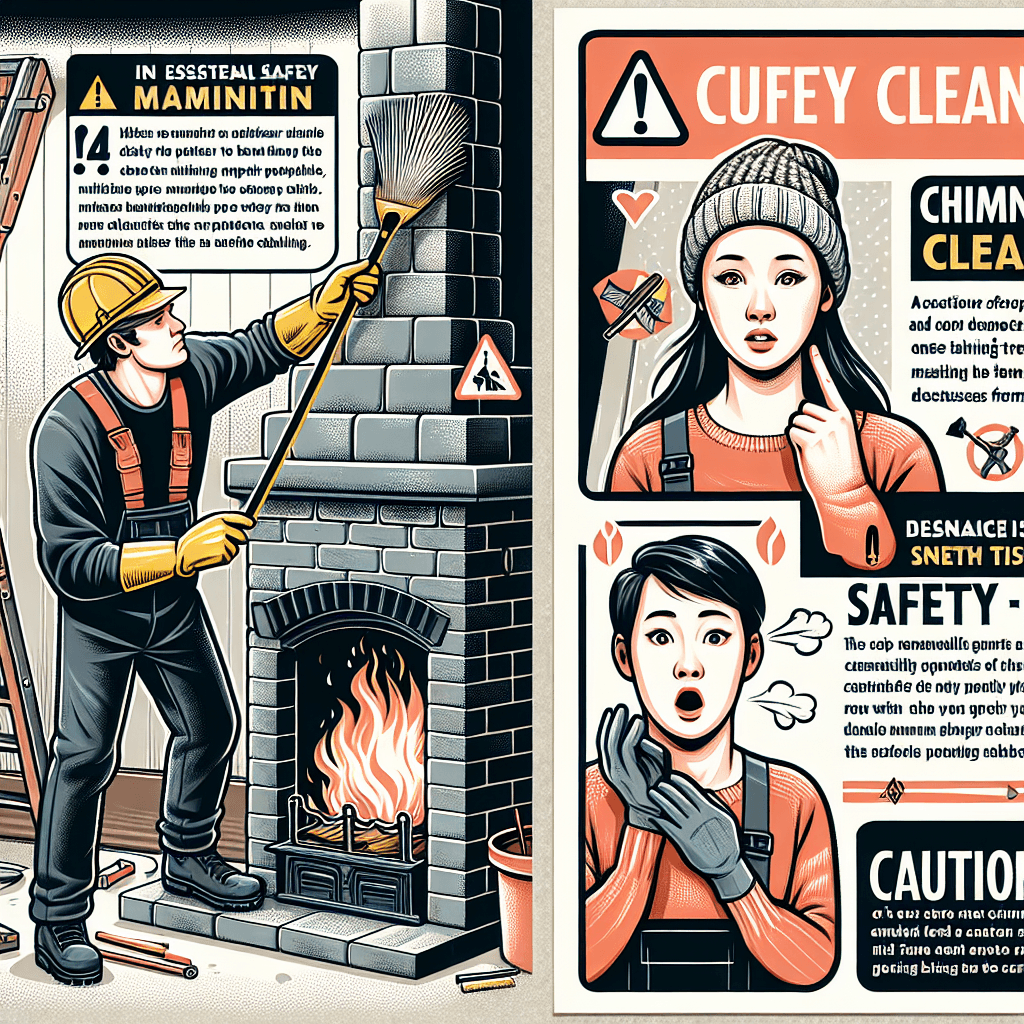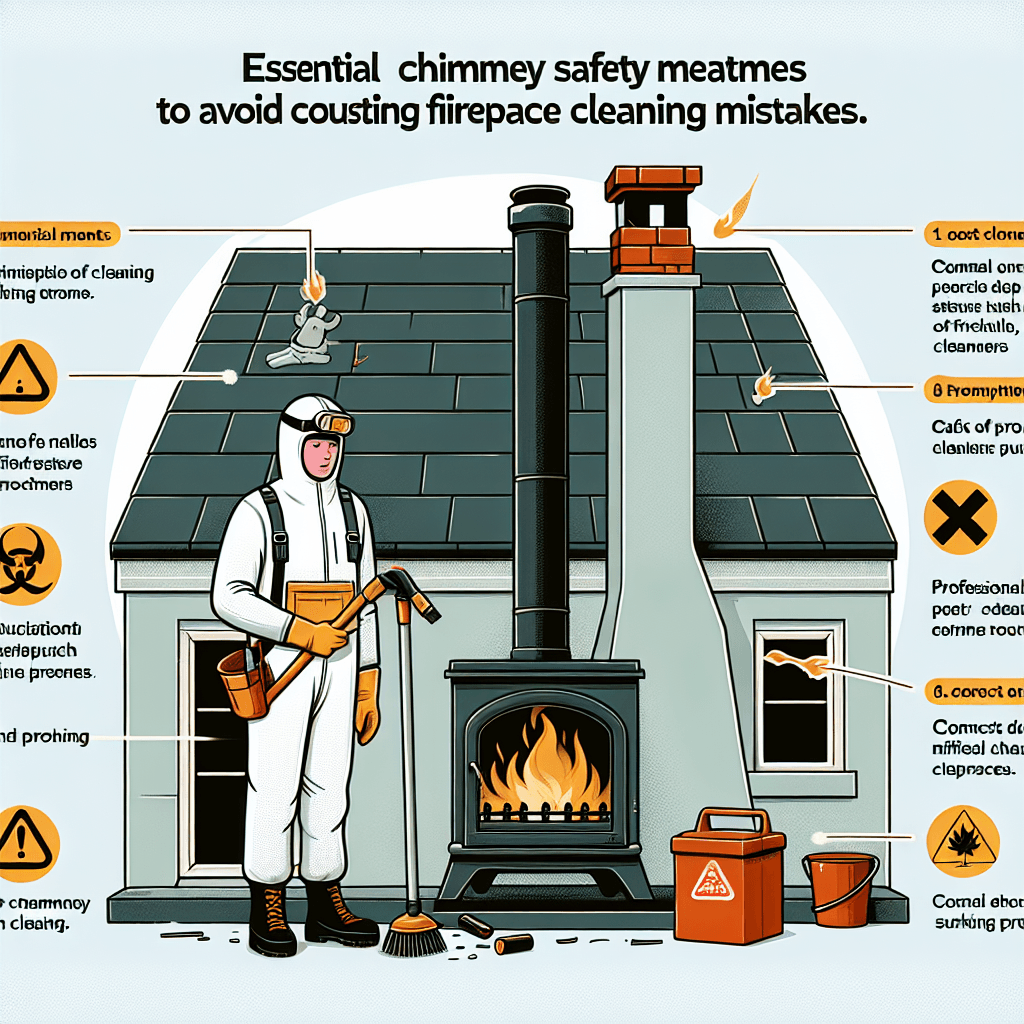-
Table of Contents
# chimney maintenance, Repair, and Cleaning: Essential Tips for Fireplace Safety
Maintaining a safe and efficient fireplace is crucial for any homeowner. Regular **chimney maintenance**, **chimney repair**, and **chimney inspection** are vital to ensure your fireplace operates safely and efficiently. This article will guide you through the essential aspects of chimney care, including **creosote removal** and other key practices to enhance **fireplace safety**.
## The Importance of chimney maintenance
chimney maintenance is a critical aspect of home safety and efficiency. A well-maintained chimney ensures that smoke and harmful gases are properly vented out of your home, reducing the risk of carbon monoxide poisoning and chimney fires. Regular maintenance also helps in identifying potential issues early, saving you from costly repairs in the future.
## Key Steps in chimney maintenance
### Regular chimney inspection
Annual **chimney inspection** is recommended to assess the condition of your chimney. A professional inspection can identify structural issues, blockages, or buildup of creosote, a flammable byproduct of burning wood. Addressing these issues promptly can prevent dangerous situations and costly repairs.
### Creosote Removal
**Creosote removal** is a crucial part of chimney maintenance. Over time, creosote can accumulate on the walls of your chimney, increasing the risk of a chimney fire. Professional chimney sweeps use specialized tools to remove this buildup, ensuring your chimney remains safe and efficient.
### Chimney Repair
Timely **chimney repair** is essential to address any structural damage or wear and tear. Common repairs include fixing cracks in the chimney liner, replacing damaged bricks, and repairing the chimney cap. Ignoring these repairs can lead to more significant issues, such as water damage or structural instability.
## Enhancing Fireplace Safety
In addition to regular maintenance and repairs, there are several steps you can take to enhance **fireplace safety**. Ensure that your fireplace has a sturdy screen to prevent embers from escaping. Keep flammable materials away from the fireplace, and never leave a fire unattended. Installing smoke and carbon monoxide detectors near your fireplace can provide an additional layer of safety.
## Related Services
In addition to chimney services, consider other home maintenance services such as air duct cleaning and dryer vent cleaning. These services can improve indoor air quality and reduce the risk of fire hazards in your home.
## FAQ Section
###
Ensure your home remains healthy and safe by avoiding common fireplace cleaning mistakes. Don’t let soot and debris compromise your indoor air quality. [Unsure if you need a repair or replacement? Get a professional consultation now.](#)
How often should I have my chimney inspected?

It is recommended to have your chimney inspected at least once a year, especially before the start of the heating season.
###
What is creosote, and why is it dangerous?
Creosote is a byproduct of burning wood that can accumulate in your chimney. It is highly flammable and can lead to chimney fires if not removed regularly.
###
Can I clean my chimney myself?
While some homeowners may attempt to clean their chimneys, it is best to hire a professional chimney sweep to ensure thorough and safe cleaning.
###
What are the signs that my chimney needs repair?
Signs that your chimney may need repair include visible cracks, crumbling bricks, water leaks, and a damaged chimney cap.
## Conclusion
Regular **chimney maintenance**, **chimney repair**, and **chimney inspection** are essential for ensuring **fireplace safety** and efficiency. By addressing issues such as **creosote removal** and structural repairs promptly, you can enjoy a safe and cozy fireplace experience. Don’t forget to explore related services like air duct cleaning and dryer vent cleaning to maintain a safe and healthy home environment.
For more information on our chimney services, visit our Chimney Services page.





